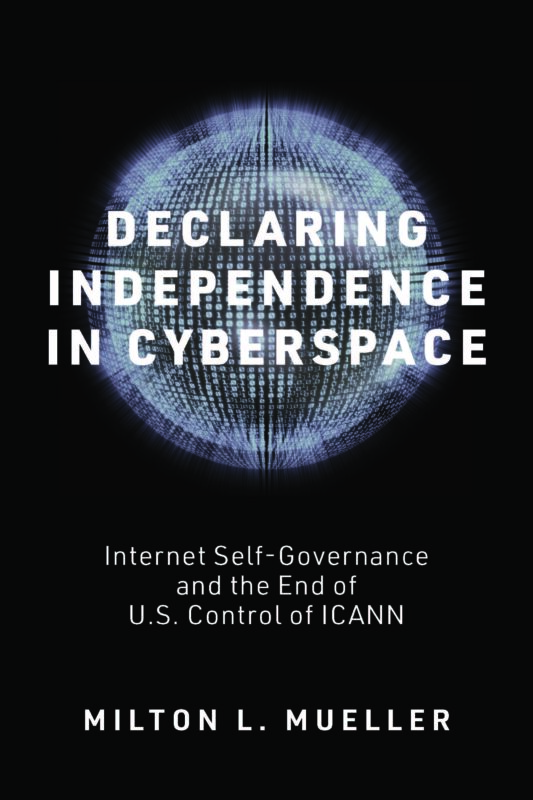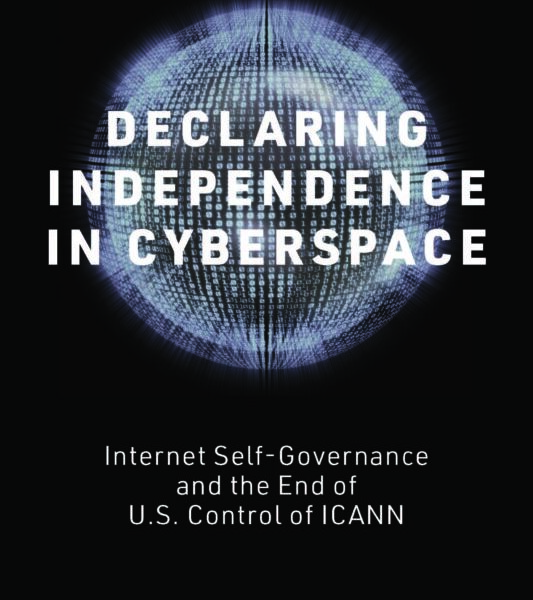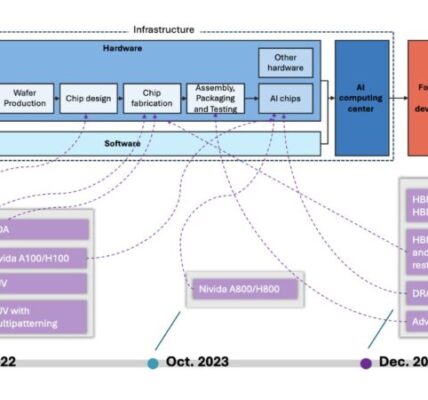New Book: Declaring Independence in Cyberspace
What is the role of the state in the governance of global cyberspace? For the past 25 years, that problem has led to conflict, negotiation and governance innovations. A new book by Milton Mueller now covers a critical part of that story: the end of the U.S. government’s control of ICANN.
In 1997 the people involved in building the Internet decided that policy for domain names and IP addresses should be made not by governments but by something called the “global Internet community.” The Internet Corporation for Assigned Names and Numbers (ICANN), created in 1998, was the US government’s answer to the question of who would make policy for the crucial identifier registries, a central point of control over Internet resources.
 Originally, ICANN was a bold institutional innovation based on a vision of Internet governance that was open, globalized and independent of nation-states. Yet that vision was compromised by the persistence of U.S. government control of ICANN, which in turn was partly caused by the instability and accountability problems of ICANN’s early years.
Originally, ICANN was a bold institutional innovation based on a vision of Internet governance that was open, globalized and independent of nation-states. Yet that vision was compromised by the persistence of U.S. government control of ICANN, which in turn was partly caused by the instability and accountability problems of ICANN’s early years.
Declaring Independence in Cyberspace explains where this vision of a new form of governance came from, the severe problems posed by its implementation, and the gradual realization of that vision with the IANA stewardship transition of 2014 – 2016. The transition ended US control and systematically reformed ICANN’s structure to make it more accountable.
Institutional innovation, it turns out, is hard. ICANN’s status as an entirely new, non-governmental global governance institution posed organizational and accountability problems for its first 15 years. At the same time, the US government refused to let go of ICANN, triggering geopolitical conflicts over state sovereignty in Internet governance. Mueller’s book covers in detail the dramatic events that prompted the US government’s change of policy. It also shows how the Internet community, through a bottom-up multistakeholder process, struggled with ICANN management and lawyers to solve the problem of making ICANN accountable to its community in the absence of US government control.
The book contains an exciting account of the political battle in Washington during the final stages of the transition, describing how the Obama administration’s support for the transition was challenged (unsuccessfully) by Republican nationalists led by Senator Ted Cruz.
The story of the IANA transition is not just about ICANN but gets to the very heart of a pressing question: Is state sovereignty the immutable foundation of global governance, or do new technological capabilities change the model? How will we govern other globalized digital technologies like cryptocurrency, artificial intelligence, and digital identifiers?
The book recognizes that a more pessimistic and uncooperative view of digital governance now prevails, but pushes back against this trend. From the ideal of a “free and open Internet” governed by the “global Internet community” we have moved to nation-states promoting “digital sovereignty,” bans on foreign apps, pervasive trade restrictions and export controls on digital devices and services, and state-sponsored cyber attacks. Although we seem to be turning away from the vision that originally motivated the creation of ICANN, Mueller argues that the alternative does not look so good. ICANN’s private sector-led governance model has in fact succeeded in insulating the Internet registries from geopolitical power struggles and jurisdictional fragmentation. Global governance by non-state actors, despite its difficulties and problems, increasingly looks like a viable and preferable alternative to attempts to impose state sovereignty on the digital world.
The book is published by the MIT Press and is available here.
The post New Book: Declaring Independence in Cyberspace appeared first on Internet Governance Project.

